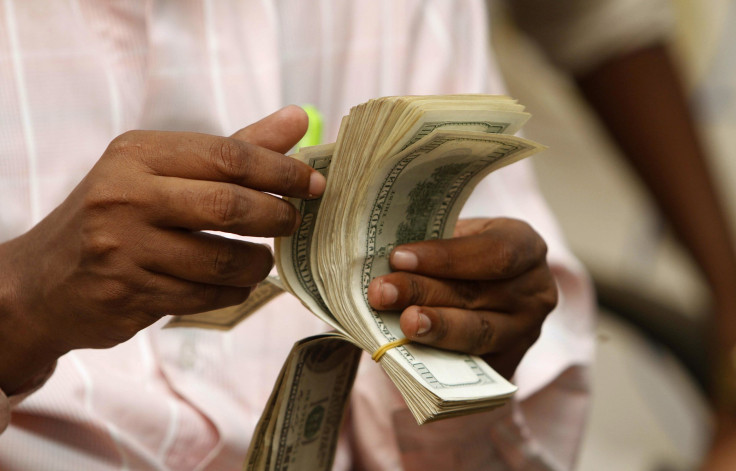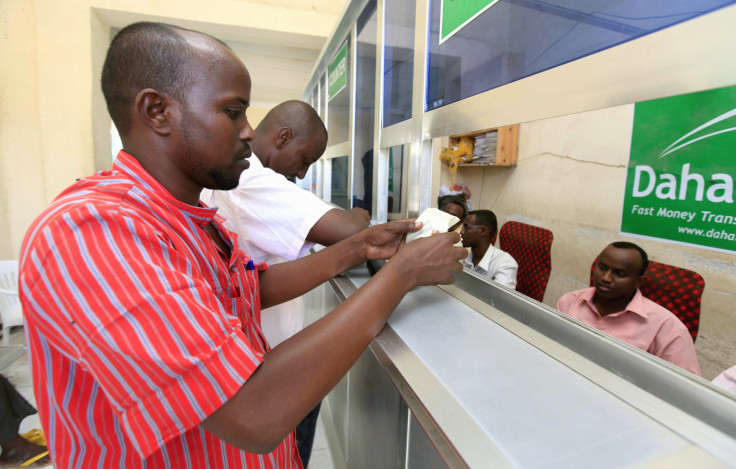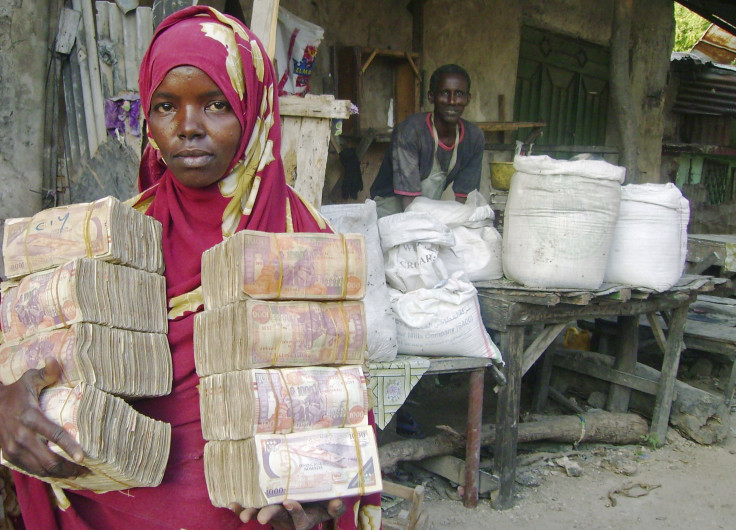MasterCard Taps Into Somalia's Remittance Money, Battles Visa In Africa

More than 20 years after Somalia entered a civil war and a downward spiral that turned it into the archetypal failed state, an international banking institution has announced a plan to become the first to enter the African nation. MasterCard says it wants to distribute debit cards to Somali citizens to help them receive money from abroad, something that has been increasingly difficult to do and on which the Somali economy, which would crumble without remittances from emigrants, depends.
In recent months, American and European governments have moved to cut off transfers to Somalia, amid a crackdown on money laundering and fears that international funds may be going to Somalia-based terrorist group al-Shabab. The situation has left many Somalis struggling to access much-needed remittances from friends and relatives abroad and created a billion-dollar gap that MasterCard seeks to fill. It's the latest move in an ongoing competition with Visa for frontier markets in Africa, where many people still use cash and debit and credit cards are a rare. It seems like a simple enough business move, but the situation is complex.
“Since there’s no silver bullet that will solve the challenges facing Somalia’s remittance system, the increased interest on the part of the business community, both Somali and international, is welcome,” said Scott Paul, Oxfam America’s Senior Humanitarian Policy Adviser.
“However, for the time being Somalis are still overwhelmingly dependent on traditional remittance companies, and it will take some time for other mechanisms to attain the same kind of coverage and social capital,” he said.
MasterCard’s plan to use debit and prepaid cards requires a certain amount of infrastructure that may not be dependable in Somalia, which has been in nearly perpetual conflict since the 1990s, after a civil war, famine, unrest and the rise of the al Qaeda-linked al-Shabab.
Consequently, a vast part of the population relies on financial transfers from the diaspora community, known as remittances, to get by. Somalis send more than $1.3 billion to friends and relatives at home, according to Oxfam. These flows represent half of the country’s annual income and helped many survive during the 2011 drought and flood, but they also help reduce its dependence on foreign aid and lay the foundation for long-term, sustainable development.
Lately, these flows have come under threat due to “de-risking,” according to the World Bank. Bank accounts held by money transfer operators continue to close, since banks fear the risks of being somehow connected to financial crime.
In January this year, Merchants Bank of California, which has handled between 60 percent and 80 percent of all U.S. transfers to Somalia, announced that it would shut down after a federal government crackdown on money laundering. And when al-Shabab claimed responsibility for a massive attack on Kenya’s Garissa University that killed 148 people, the Kenyan government froze the accounts of Somali banks and money transfer services.

“The fragile progress in Somalia and other parts of East Africa is sustained in part by money sent from friends and family overseas,” wrote Rep. Keith Ellison, a Democratic member of Congress from Minnesota -- where many Somali immigrants live -- in an April editorial in the New York Times, arguing against the decision to cut off funding to Somalia in an attempt to fight al-Shabab. He wrote that the international community should make it easier, not harder, for Somalis abroad to send money home.
As Europe and the United States continue to crack down on the problem, it is often difficult for users to navigate the increasingly complex money transfer methods, either through companies such as Western Union or the less formal methods such as the hawala system, which utilizes a network of agents around the world, usually connected by family ties, to pool donations together and transfer them all at once.
This problem is one that MasterCard claims it is trying to address and capitalize on through a partnership with Somali Premier Bank Ltd. that will allow the latter to allow cash withdrawals on the 5,000 MasterCard debit cards it will issue this year and will enable access to funds from abroad.
The new debit card system “addresses a long-standing concern that governments like the U.S. and U.K. have had with our informal banking sector, where they always had doubt whether all the money was going to right people,” Abdirahman Yusuf Ali Aynte, Somalia’s minister of planning and international cooperation, told Bloomberg.
MasterCard’s products will be the first domestically issued debit cards in Somalia, the last remaining country in Africa not under sanctions that the company hasn’t worked in yet.
“If the country’s not under sanctions, it’s open for business,” Daniel Monehin, MasterCard division president for sub-Saharan Africa, said, according to the Wall Street Journal.
To say the banking market in sub-Saharan Africa has potential is an understatement. Between 80 percent and 90 percent of transactions on the continent are still done in cash only, according to McKinsey & Company. This means there’s a massive market for people looking for their first card, which means MasterCard and Visa Inc., have been fighting aggressively to stake their claims in lucrative growth markets.

For its part, Visa has focused on partnering with telecommunications companies in hopes of tapping into Africa’s vast mobile payments market. Visa has previously partnered with Airtel and MTN, two of the biggest mobile companies on the continent. MasterCard, on the other hand, has focused on remittances. In March, it announced a partnership with Zimbabwe’s Steward Bank to facilitate cash transfers from abroad.
In the first quarter of this year, Visa saw a 12.5 percent increase in its Central Europe, Middle East and Africa sector over the 9.6 percent world average. MasterCard’s purchase volumes in the Asia-Pacific, Middle East and Africa increased 15.2 percent, faster than its global average of 11.8 percent over the same period.
“To promote economic growth in Somalia, which has long been isolated from the global economy, there is a need for electronic payment solutions that align with international security and regulation standards,’’ Monehin said in a statement announcing the partnership.
However, the country still has a long way to go before becoming a major revenue source. In the chaos of recent years, it has been difficult to develop infrastructure such as banks and credit systems.
“It’s not going to solve the remittance problem. There’s more to it,” said Peter Pham, head of the Atlantic Council’s Africa Center. For instance, it wasn’t until last 2014 that the first automated teller machines were installed in the capital city of Mogadishu.
“To make it useful, you would have to have fairly significant infrastructure. Over time it’s possible, but certainly not in the short term,” Pham said. He added that, while it may be a very difficult transition period, the move could certainly lay the groundwork for future development, even if it takes a long time.
© Copyright IBTimes 2024. All rights reserved.






















